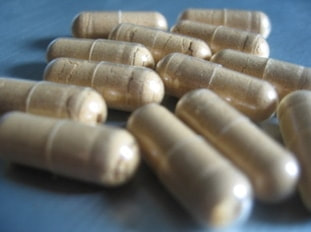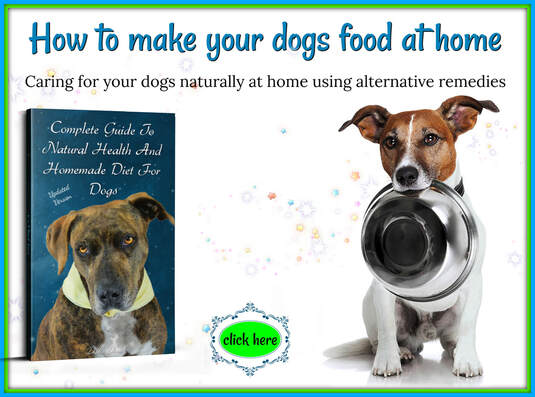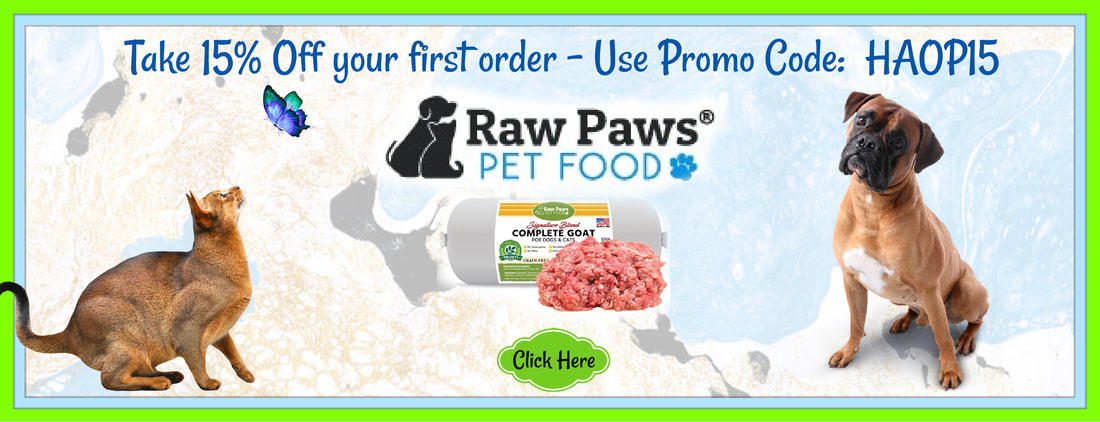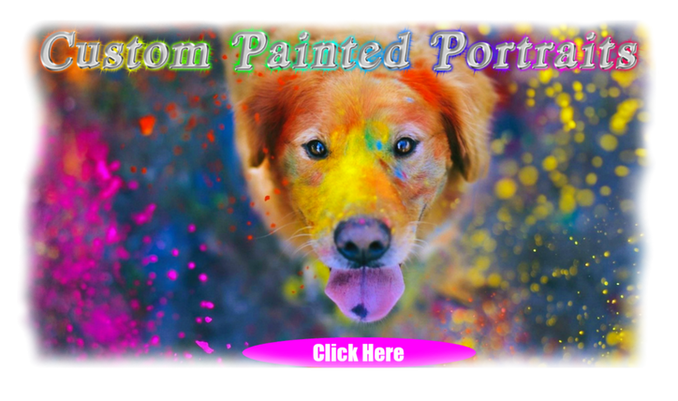What are probiotics and when are they used as a treatment in cats and dogs?

By OSU Boren Veterinary Medical Teaching Hospital
Probiotics are defined as live microorganisms which deliver a health benefit to the host when administered in adequate amounts.
The use of probiotics has been advocated in humans as a form of alternative or complementary medicine for many years. Although a long-standing part of treatment and health maintenance in exotic and pocket pets, the inclusion of probiotics in the care of cats and dogs has been a relatively recent development in veterinary medicine.
After oral consumption, probiotics are thought to bring about beneficial effects by inhibiting the actions of potentially dangerous microorganisms present in the gut through competition for nutrients and sites of attachment to gut tissue. In addition, the probiotic agents are thought to enhance digestion and acid-base balance of the gastrointestinal (GI) tract as well as affecting immune responses of the host in a positive manner.
Probiotics are defined as live microorganisms which deliver a health benefit to the host when administered in adequate amounts.
The use of probiotics has been advocated in humans as a form of alternative or complementary medicine for many years. Although a long-standing part of treatment and health maintenance in exotic and pocket pets, the inclusion of probiotics in the care of cats and dogs has been a relatively recent development in veterinary medicine.
After oral consumption, probiotics are thought to bring about beneficial effects by inhibiting the actions of potentially dangerous microorganisms present in the gut through competition for nutrients and sites of attachment to gut tissue. In addition, the probiotic agents are thought to enhance digestion and acid-base balance of the gastrointestinal (GI) tract as well as affecting immune responses of the host in a positive manner.
|
Probiotics are recommended for a variety of purposes in humans. One of the most heavily advertised benefits is the promotion of regular, well-formed bowel movements. But studies have indicated a number of other beneficial effects may be derived from the use of probiotics. Many of these effects are related to the GI tract, including prevention and/or treatment of intestinal bacterial overgrowth, intestinal shedding of potentially harmful bacteria, stress diarrhea, and manifestations of food-related allergies, inflammatory bowel disease, irritable bowel syndrome, and disturbances of the GI lining induced by drug administration.
Bodily functions and organ systems other than the GI tract may also benefit from probiotics. |
These potential benefits include control of clinical signs related to arthritis, hypertension, dental disease, and infections or allergies of the skin, urogenital tract, and respiratory system.
Ongoing research is being conducted to determine if cats and dogs can derive the same beneficial effects attributed to the use of probiotics in people.
Ongoing research is being conducted to determine if cats and dogs can derive the same beneficial effects attributed to the use of probiotics in people.
Current evidence indicates that probiotics are most likely to be helpful in resolving or preventing canine and feline diarrhea associated with diet, medication, stress, certain GI infections, inflammatory bowel disease, intestinal bacterial overgrowth, maldigestion, and malabsorption.
Canine and feline disorders unrelated to the GI tract may also benefit from probiotic administration, but adequate supporting evidence of benefit outside the GI tract is relatively lacking.
Canine and feline disorders unrelated to the GI tract may also benefit from probiotic administration, but adequate supporting evidence of benefit outside the GI tract is relatively lacking.
A variety of human and veterinary probiotic preparations are available. Manufacturer claims for these preparations frequently are poorly supported by well-controlled studies.
In order to be safe and effective the microorganisms in probiotic products must meet the following requirements: must maintain viability and stability in product storage; be present in large numbers; be able to survive passage through the acidic gastric environment; be nonresistant to antibiotics; be unlikely to cause disease or toxicity; and be incapable of absorption into the bloodstream following consumption.
While non-pasteurized yogurt fortified with probiotic organisms may be of benefit to your pet, such fermented dairy products are not tolerated by some pets and often do not provide a consistent number of suitable microorganisms.
In general, it is best to select a probiotic product which is marketed by a well-established company. As with any supplement you are administering to your pet, it is best to consult your veterinarian to help establish if the product is safe, suitable for the purpose intended, and capable of interacting appropriately with any traditional therapy being used for a specific medical problem.
This column is provided by the faculty of the OSU Boren Veterinary Medical Teaching Hospital.
In order to be safe and effective the microorganisms in probiotic products must meet the following requirements: must maintain viability and stability in product storage; be present in large numbers; be able to survive passage through the acidic gastric environment; be nonresistant to antibiotics; be unlikely to cause disease or toxicity; and be incapable of absorption into the bloodstream following consumption.
While non-pasteurized yogurt fortified with probiotic organisms may be of benefit to your pet, such fermented dairy products are not tolerated by some pets and often do not provide a consistent number of suitable microorganisms.
In general, it is best to select a probiotic product which is marketed by a well-established company. As with any supplement you are administering to your pet, it is best to consult your veterinarian to help establish if the product is safe, suitable for the purpose intended, and capable of interacting appropriately with any traditional therapy being used for a specific medical problem.
This column is provided by the faculty of the OSU Boren Veterinary Medical Teaching Hospital.
PROBIOTICS
Question:
I am curious why some probiotics do not require refrigeration even though they contain some of the same bacteria in probiotics that require refrigeration? Which probiotics need to be refrigerated?
Answer:
Proper refrigeration is critical for many probiotics, both before and after they are purchased. In fact, in 2009 the majority (85%) of probiotics selected for testing by ConsumerLab.com did not contain their listed amounts of organisms and, as ConsumerLab.com later learned, improper shipping and warehousing by distributors and retailers appears to have been at least partly to blame. Fortunately, ConsumerLab.com found better results in early 2012 (17% of products failed testing), probably due to improvements in refrigeration procedures by several companies. Many probiotic bacteria are sensitive to heat and moisture. Heat can kill organisms and moisture can activate them within pills, only to die due to lack of nutrients and a proper environment. These products should ideally be refrigerated.
Probiotics with freeze-dried organisms in appropriate packaging to prevent moisture, such as blister packs, generally do not need refrigeration. They also have longer shelf-lives than products containing live organisms, such as liquid products (which must be refrigerated). Probiotic yeast and some of the spore-forming bacteria, such as Bacillus coagulans, generally do not require refrigeration.
If you are purchasing a probiotic with a label that suggests or requires it be refrigerated, be sure your retailer has kept it refrigerated. If you order the product by mail, such as from an online retailer, be sure it is shipped overnight or with refrigerated shipping to minimize exposure to extreme heat.
Once you get the product, be sure to follow the manufacturer's recommendations. If in doubt, refrigerate!
I am curious why some probiotics do not require refrigeration even though they contain some of the same bacteria in probiotics that require refrigeration? Which probiotics need to be refrigerated?
Answer:
Proper refrigeration is critical for many probiotics, both before and after they are purchased. In fact, in 2009 the majority (85%) of probiotics selected for testing by ConsumerLab.com did not contain their listed amounts of organisms and, as ConsumerLab.com later learned, improper shipping and warehousing by distributors and retailers appears to have been at least partly to blame. Fortunately, ConsumerLab.com found better results in early 2012 (17% of products failed testing), probably due to improvements in refrigeration procedures by several companies. Many probiotic bacteria are sensitive to heat and moisture. Heat can kill organisms and moisture can activate them within pills, only to die due to lack of nutrients and a proper environment. These products should ideally be refrigerated.
Probiotics with freeze-dried organisms in appropriate packaging to prevent moisture, such as blister packs, generally do not need refrigeration. They also have longer shelf-lives than products containing live organisms, such as liquid products (which must be refrigerated). Probiotic yeast and some of the spore-forming bacteria, such as Bacillus coagulans, generally do not require refrigeration.
If you are purchasing a probiotic with a label that suggests or requires it be refrigerated, be sure your retailer has kept it refrigerated. If you order the product by mail, such as from an online retailer, be sure it is shipped overnight or with refrigerated shipping to minimize exposure to extreme heat.
Once you get the product, be sure to follow the manufacturer's recommendations. If in doubt, refrigerate!
Probiotics: Even Your Traditional Vet May Now Recommend This Pet Supplement
By Dr. Becker
Probiotics are living microorganisms or gut friendly bacteria. They were discovered in the early 1900’s by Russian Nobel Laureate Elie Metchnikoff. Metchnikoff became aware that people living in rural areas who consumed fermented milk on a regular basis lived long lives, and he attributed it to the Lactobacillus organism found in milk. Metchnikoff began advising people to use fermented milk to decrease pH levels in the GI tract and suppress growth of harmful gut bacteria.
Holistic vets have been recommending probiotics for pets for decades, but the good news is that traditional veterinarians are becoming more aware of their benefits as well, and many DVMs now routinely recommend probiotic supplementation for patients with diarrhea, and those receiving antibiotic therapy.
Probiotics Are Proving Beneficial in a Wide Variety of Diseases and Disorders
According to Dr. Marcella Ridgway, writing for Clinician’s Brief, “Initial investigation of clinical efficacy of probiotic use in disease prevention and treatment in veterinary medicine is promising but preliminary.”
While there isn’t sufficient evidence yet to formally support specific health claims for probiotics, pretty much everyone now agrees they improve GI health and immune system function. And a growing body of research suggests probiotics can have therapeutic benefits for a wide range of health conditions, including chronic GI malfunction, allergies, diabetes, obesity, liver disease, and mood and behavior disorders.
Probiotics are living microorganisms or gut friendly bacteria. They were discovered in the early 1900’s by Russian Nobel Laureate Elie Metchnikoff. Metchnikoff became aware that people living in rural areas who consumed fermented milk on a regular basis lived long lives, and he attributed it to the Lactobacillus organism found in milk. Metchnikoff began advising people to use fermented milk to decrease pH levels in the GI tract and suppress growth of harmful gut bacteria.
Holistic vets have been recommending probiotics for pets for decades, but the good news is that traditional veterinarians are becoming more aware of their benefits as well, and many DVMs now routinely recommend probiotic supplementation for patients with diarrhea, and those receiving antibiotic therapy.
Probiotics Are Proving Beneficial in a Wide Variety of Diseases and Disorders
According to Dr. Marcella Ridgway, writing for Clinician’s Brief, “Initial investigation of clinical efficacy of probiotic use in disease prevention and treatment in veterinary medicine is promising but preliminary.”
While there isn’t sufficient evidence yet to formally support specific health claims for probiotics, pretty much everyone now agrees they improve GI health and immune system function. And a growing body of research suggests probiotics can have therapeutic benefits for a wide range of health conditions, including chronic GI malfunction, allergies, diabetes, obesity, liver disease, and mood and behavior disorders.
|
In studies of dogs and cats with acute or chronic unexplained diarrhea and dogs with diet-related diarrhea, probiotic supplementation had the following non diarrhea-related benefits:
•Reduced inflammation levels in allergic dogs •Improved vaccine response and growth rates in puppies •Lowered cholesterol in healthy dogs and those with intestinal disease •Reduced levels of certain fecal bacteria in dogs •Reduced the incidence of feline herpes (FHV-1) infections Studies also suggest there are no side effects of probiotic therapy, and that supplementation is safe and easy to administer in pets. |
How Probiotics Work
The exact mechanism by which probiotics work in the GI tract is as yet unknown, but the most common working theory is that friendly bacteria establishes itself in the gut, and its presence discourages proliferation of pathogenic (unfriendly) bacteria.
Dr. Ridgeway provides an expanded explanation:
“Gut bacteria serve many functions, including food product fermentation, digestion and nutrient absorption, vitamin synthesis, drug metabolism, interaction with cells for gut development and function, and host immune system modulation.
The exact mechanism by which probiotics work in the GI tract is as yet unknown, but the most common working theory is that friendly bacteria establishes itself in the gut, and its presence discourages proliferation of pathogenic (unfriendly) bacteria.
Dr. Ridgeway provides an expanded explanation:
“Gut bacteria serve many functions, including food product fermentation, digestion and nutrient absorption, vitamin synthesis, drug metabolism, interaction with cells for gut development and function, and host immune system modulation.
“Alterations in GI microflora secondary to illness, stress, antibiotic use, and dietary and/or environmental changes can disrupt GI homeostasis (the complex inter-relationship of resident GI organisms and normal GI mucosal functions), which has far-reaching effects on host immune system and organ function.
“Probiotics may benefit affected individuals by acting at one or more points to initiate, enhance, or restore function to evoke a positive health effect.”
Selecting the specific probiotic strains to include in a veterinary supplement is currently based primarily on the strains that hold up best during product processing and are also able to effectively colonize the gut.
Going forward, research should evaluate particular strains for specific health benefits. Good candidates include strains that are derived from the species for which the probiotic is intended; are able to remain viable through product processing and storage; can survive the environment of the GI tract, including the presence of gastric acid and bile; and can adhere to and inhabit gut tissue. Of course, these strains also must be nonpathogenic and have health benefits for the animal.
I’m hopeful future evidence-based studies will reveal many more suitable probiotic strains, proper dosing levels, and the effectiveness of supplementation in a wide variety of canine and feline disorders.
“Probiotics may benefit affected individuals by acting at one or more points to initiate, enhance, or restore function to evoke a positive health effect.”
Selecting the specific probiotic strains to include in a veterinary supplement is currently based primarily on the strains that hold up best during product processing and are also able to effectively colonize the gut.
Going forward, research should evaluate particular strains for specific health benefits. Good candidates include strains that are derived from the species for which the probiotic is intended; are able to remain viable through product processing and storage; can survive the environment of the GI tract, including the presence of gastric acid and bile; and can adhere to and inhabit gut tissue. Of course, these strains also must be nonpathogenic and have health benefits for the animal.
I’m hopeful future evidence-based studies will reveal many more suitable probiotic strains, proper dosing levels, and the effectiveness of supplementation in a wide variety of canine and feline disorders.
How Do I Know If My Pet Needs a Probiotic Supplement?
The health of an animal’s GI tract can be easily compromised by everything from emotional stress to unhealthy lifestyle choices he has no control over.
As an example, veterinary antibiotics and corticosteroids are overprescribed, and both types of drugs can decimate the helpful bacteria in your pet’s gut. Other stressors that can open the door for pathogenic bacteria to overwhelm the good bugs include a sudden change in diet for a pet that’s been eating the same food every day for months or years; a poor quality, biologically inappropriate diet; eating non-food items like poop, grass or rocks; drinking unclean water; ingestion of toxins; vaccinations; boarding; travel; GI disease and surgery.
When GI stressors throw the balance of good-to-bad gut bacteria out of whack, it can create a cascade of nutritional and other health problems. It also opens the door to leaky gut syndrome (dysbiosis), which means your dog or cat is absorbing partially digested amino acids and allergens into the bloodstream. This can trigger a wide range of additional health problems, from allergies to autoimmune disease.
In my experience, almost every dog and cat today can benefit from probiotic supplementation.
http://healthypets.mercola.com/sites/healthypets/archive/2013/05/22/pet-probiotics.aspx?e_cid=20130522_PetsNL_art_1&utm_source=petnl&utm_medium=email&utm_content=art1&utm_campaign=20130522
The health of an animal’s GI tract can be easily compromised by everything from emotional stress to unhealthy lifestyle choices he has no control over.
As an example, veterinary antibiotics and corticosteroids are overprescribed, and both types of drugs can decimate the helpful bacteria in your pet’s gut. Other stressors that can open the door for pathogenic bacteria to overwhelm the good bugs include a sudden change in diet for a pet that’s been eating the same food every day for months or years; a poor quality, biologically inappropriate diet; eating non-food items like poop, grass or rocks; drinking unclean water; ingestion of toxins; vaccinations; boarding; travel; GI disease and surgery.
When GI stressors throw the balance of good-to-bad gut bacteria out of whack, it can create a cascade of nutritional and other health problems. It also opens the door to leaky gut syndrome (dysbiosis), which means your dog or cat is absorbing partially digested amino acids and allergens into the bloodstream. This can trigger a wide range of additional health problems, from allergies to autoimmune disease.
In my experience, almost every dog and cat today can benefit from probiotic supplementation.
http://healthypets.mercola.com/sites/healthypets/archive/2013/05/22/pet-probiotics.aspx?e_cid=20130522_PetsNL_art_1&utm_source=petnl&utm_medium=email&utm_content=art1&utm_campaign=20130522



















